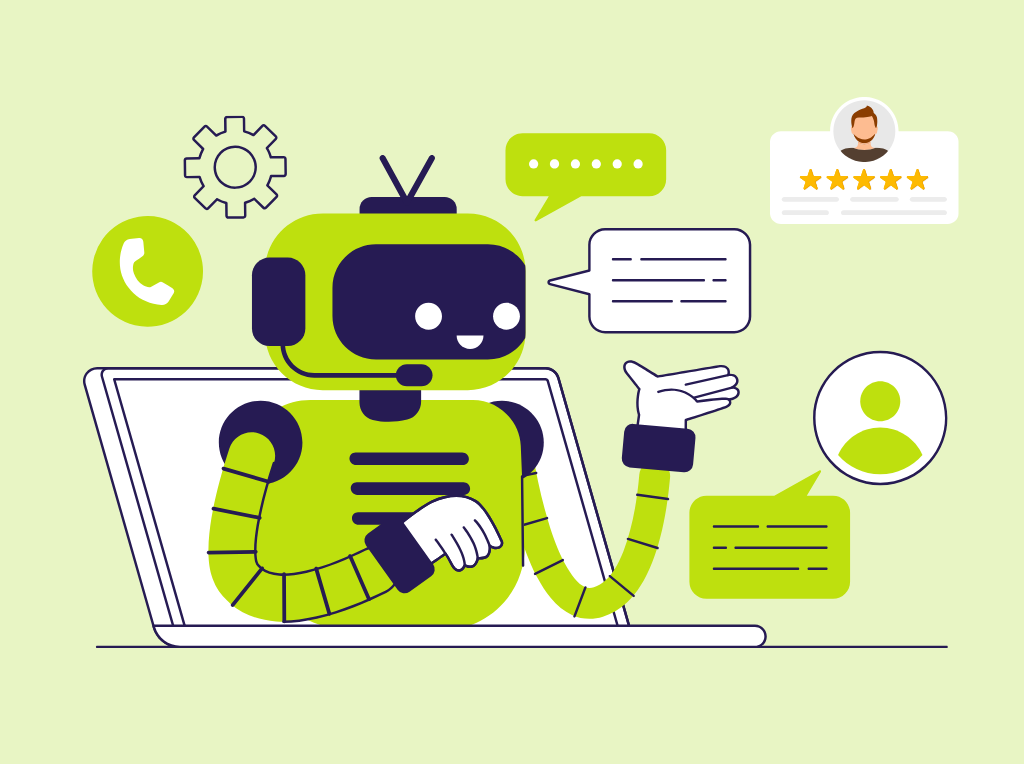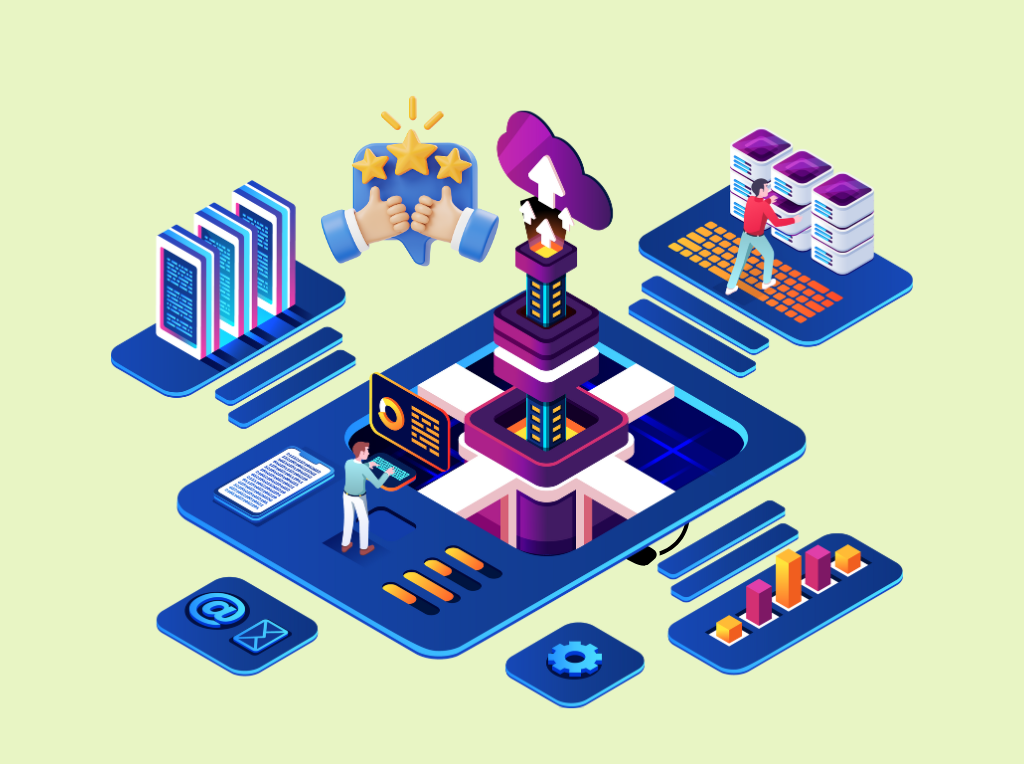Call Centers are increasingly turning to chatbots to enhance customer service and streamline operations. The right chatbot can significantly improve customer interactions, reduce wait times, and free up human agents to handle more complex issues.
However, selecting the appropriate chatbot for your call center requires careful consideration of various factors. To effectively identify the right chatbots for your call center, it is essential to consider various factors that align with your business objectives and customer service needs. Let’s understand in detail about the types of chatbots and how to choose the perfect one for your call center.
Types of Chatbots
There are a variety of chatbots available to meet different needs in the contact center. The customer service requirements are different in call centers based on the industry type and the expectations of the customers. However, they may struggle with nuanced queries or unexpected phrasing
Rule-Based Chatbots
Rule-based chatbots operate on a straightforward principle of predefined scripts, utilizing an if-this-then-that logic. This makes them particularly effective for managing simple tasks, such as answering frequently asked questions (FAQs).
Keyword Recognition Chatbots
Keyword recognition chatbots leverage artificial intelligence to identify key phrases within user queries. This capability enables them to provide more relevant and contextually appropriate responses compared to traditional rule-based systems. These chatbots can adapt to various ways to satisfy the customers’ needs minimizing frustration and increasing satisfaction.
AI-Powered Chatbots
AI-powered chatbots employ sophisticated machine learning and natural language processing (NLP) technologies to understand and respond to user inputs in a more human-like manner. The adaptability of AI chatbots allows them to learn from each interaction, continually refining their responses based on customer feedback.
Hybrid Models
Hybrid chatbot models fuse the structured approach of rule-based systems with the adaptability of AI capabilities. This fusion provides a flexible solution for managing various customer interactions, allowing businesses to benefit from the strengths of both systems.
What to Consider Before Selection of the Right Chatbots
1. Define Your Purpose
Clearly outlining the purpose of the chatbot is crucial. Whether the goal is to enhance customer service, drive sales, or provide both functionalities, having a defined objective will help in selecting the appropriate features and capabilities. The clarity of the purpose in your mind helps you select the chatbot that aligns with your business strategy and bring the desired outcome.
2. Ease of Integration
The chatbot should integrate seamlessly with existing systems such as Customer Relationship Management (CRM) and other customer service platforms. This integration is vital for maintaining smooth operations and ensuring that data flows efficiently between systems, which enhances overall productivity and reduces operational silos.
3. AI and Machine Learning Capabilities
Opting for chatbots that utilize AI and machine learning is essential for improving performance over time. These technologies allow chatbots to adapt their responses based on historical data and user interactions, leading to more personalized and effective customer engagements. Advanced AI capabilities can also help in handling complex queries more efficiently.
4. Natural Language Processing (NLP)
Selecting a chatbot equipped with advanced Natural Language Processing (NLP) capabilities is critical. NLP enables the bot to understand and interpret human language nuances, including idioms, slang, and varied sentence structures. This results in more natural conversations and better comprehension of user intents, ultimately enhancing user satisfaction.
5. Multilingual Support
For businesses with an international customer base, ensuring that the chatbot supports multiple languages is paramount. Multilingual capabilities enhance accessibility and allow companies to cater to a diverse audience, thereby improving customer engagement across different regions.
6. Customization
The chatbot should reflect your brand’s tone and style, allowing for personalized interactions that resonate with customers. Customization options enable businesses to tailor responses and interactions according to their unique branding requirements, fostering a stronger connection with users.
7. Scalability
As your business grows, so will the volume of interactions handled by the chatbot. It is important to choose a solution that can scale effectively to manage increasing demand without compromising performance during peak times. A scalable chatbot ensures consistent service quality as customer interactions rise.
8. Security and Compliance
Prioritizing chatbots that adhere to industry security standards is crucial for protecting customer data. Ensuring compliance with regulations such as GDPR or HIPAA helps maintain trust with customers and safeguards sensitive information from breaches.
9. Analytics and Reporting
A robust analytics framework is essential for tracking performance metrics such as response times, resolution rates, and customer satisfaction levels. This data provides insights into the chatbot’s effectiveness and areas for improvement, facilitating continuous enhancement of service quality.
10. Cost-Effectiveness
Evaluating the total cost of ownership is necessary when selecting a chatbot solution. This includes initial setup costs, ongoing maintenance fees, and any additional expenses associated with features or integrations. Ensuring that the solution fits within your budget while meeting your operational needs is vital for long-term sustainability.
11. Reliable Support
Choosing a provider known for excellent customer support can significantly impact the success of your chatbot implementation. Reliable support ensures that any issues encountered during deployment or operation are promptly addressed, minimizing downtime and disruptions.
Conclusion
Identifying the right chatbot for your call center involves a comprehensive understanding of your needs, clear goal setting, careful evaluation of features, and ongoing performance monitoring. By taking these steps, you can enhance customer service efficiency and satisfaction while empowering your team to focus on more complex tasks.
The integration of the right chatbot technology not only streamlines operations but also transforms the overall customer experience in your call center. By carefully considering these factors, you can find the perfect chatbot match for an exceptional call center experience.




